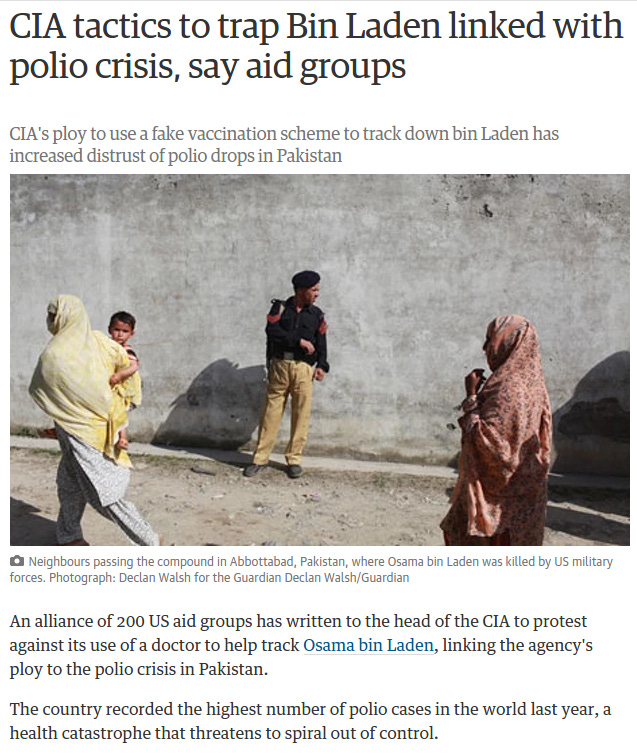Foes Without Faces
I. The Bargain Imagine a fantasy world inhabited by both humans and ancient, unspeakable evils. The ancient evils ravage hundreds of kingdoms every generation, taking countless millions of lives year after year. Eventually, the humans learn to protect themselves, lessening their casualties, driving the ancient horrors back. Some are even vanquished entirely. But it is slow, and uneven, and a single mistake can undo decades of grueling progress. Millions still perish, but fewer each year, and bit by bit humanity inches towards victory. One day, a band of human renegades attacks the kingdom, slaughtering thousands of innocents. The kingdom retaliates and hunts the renegades across the world for years, dedicating a substantial fraction of their resources to wiping the enemy out. But the leader eludes them - even years later, when the renegades have been all but completely crushed, the once-leader still taunts them from the shadows, and the citizens cry out for vengeance. One of the Ancient Horrors, on the brink of total annihilation, hears of this, and senses an opportunity. From corrupted shadow, a broken whisper hisses in the ears of the kingdom's leaders: "I offer you this exchange, mortals of the kingdom: I will give you one chance to annihilate your sworn enemy, the one whose blood you so crave - and all I ask in exchange is that your clerics lower their defenses in the human lands where I yet remain." The leaders confer among themselves. "Er, I'm not sure this is a good idea," says one. "This horror has killed millions, far more than the mere criminal we hunt, and we are so close to wiping them out entirely. Best case, we lose years of progress and hundreds of victims that we could have saved. Worst case, we'll risk a full resurgence and millions of deaths if the horror comes back into its full power. Do I even have to say this? It's obviously not worth allying ourselves with an ancient unspeakable evil whose voice is the essence of death just to kill one lousy human, no matter how awful they are. Right? We all agree, that's just obviously stupid, right?"
II. Revealed Preferences The US spends $16.6 billion on counterterrorism efforts every year. This only counts federal spending, within the intelligence agencies, explicitly marked "counter-intelligence". It does not count, for example, increased costs from waiting in TSA lines and missing flights, increased costs, injuries, and fatalities from people driving instead of flying, wars, or any military spending. The actual number is probably much higher. Terrorism, in turn, kills fewer than 10 people in the US most years. Once every...actually, just once, there's a 9/11, which kills 3,000 people. But maybe this is misleading (it's probably not) - maybe all that counter-terrorism money is incredibly effective at countering terrorism, and stops one 9/11 every single year. That comes out to about a bit over five million dollars per life saved. Motor vehicle accidents have killed more than 30,000 people in the US each and every year since 1945 - usually way more. The entire budget of the National Highway Traffic Administration is $815 million. That's for specifying, inspecting, and approving every car part and every stage of manufacturing, shipment, delivery, and maintenance. Let's say that all of those things - all the crash tests, all the inspections, the entire license plate system, reduce the number of traffic casualties by 1/10 of what they would otherwise be, and that there are no other positive effects from this agency, and we'll use the lowest recorded number of fatalities since WWII as the baseline. That comes out to about $250 thousand per life saved. I've tried to bias these estimates towards counterterrorism effectiveness as much as possible, but I still ended up spending 20x as much per life saved on terrorism rather than traffic safety. It seems like we treat being killed by terrorism as at least 20x worse than being killed in a traffic accident. Why? What makes us so much more determined to fight terrorism than traffic accidents? III. Anthropomorphism Enemies are fun. Fun might not be quite the right word - but enemies are certainly more interesting. We have a cultural rule that stories almost always have to have an antagonist to root against. Oh, that guy gained spider powers and can now swing around the city stopping crime and improving the world? I guess that's pretty interesting, but it's not really worth seeing unless you also have an insane scientist with giant metal octopus arms to fight against. We're wired to find enemies to be fun. Protagonists fighting against something that's broken isn't nearly as engrossing as protagonists fighting against evil. That's why we get really into sports rivalries. That's why outrage addiction is a thing. It's easy to imagine a good game-theoretic reason for this. When we do have enemies, we want them to know that hurting us is a bad idea. One way to do that is to make them believe that if they attack us, we will fight back way out of proportion compared to how we would handle other threats - their belief that we will overreact is useful to us. And the best way to make people believe that is for it to be true - to really be willing to go to extraordinary lengths to fight back against and thwart our enemies. And beyond that, having enemies is memetically adaptive. But there's more than just a feedback loop between two social groups going on - you can get similar effects with an enemy that doesn't actually exist. IV. The Enemy That Wasn't There You know how humans tend to see faces on everything, even when there isn't one?
It's because we're all walking around with these hyper-sensitive face-detectors in our heads, and it's really easy to give them a false positive. Detecting faces was and is a key part of surviving as a human. And so for enemies: Knowing that someone is out to get us is an incredibly important skill to get by day to day. And sometimes we'll get false positives on that, too. If it happens constantly, we call it "paranoia". The Satanic Ritual Abuse Panic of the 1980s gave millions of people a horrifying, if imaginary, enemy to unite against, and it was extremely effective. The entire "Witch Hunt" pattern is basically this - desperately seeking out an enemy who you believe just has to be there. Having extremely-sensitive-enemy-detectors in our brains makes sense: Enemies are motivated to conceal themselves, so we put extra effort into detecting them - and early humans who were bad at detecting the growing conspiracy to cast them out of the tribe probably didn't have amazing life expectancies. Combine this with the aforementioned adaptive overreaction, and things can go very wrong very fast. There's no amount of overreaction you can give to scare off an imaginary enemy. And this gets way worse when your enemy detector is dealing with a miniscule signal-to-noise ratio, as in an outcast arms race. So, in a shocking twist for this blog, I'm claiming that a lot of things are broken. How can we put this to work for us? V. Giving the Enemy a Face If we could ask knowledgeable experts in human behavior modification how to get people to pay attention to a neglected area, what would they say? https://www.youtube.com/watch?v=4G8JZwh5ZHY The "Mayhem" series has won over 80 advertising awards, Since launching in mid-2010, Allstate's stock has more than doubled. This blog's thesis is that our truest, worst enemies do not have faces. They are the incentives and systems that optimize for things that we don't care about. It's disease and coordination problems and maladaptive thought patterns. It's bad defaults and broken perceptions. The enemies that hurt us most, we pay the least heed to - as evidenced by our stories and our budgets. It's hard to change how minds work. It's much easier to change our narratives. Meditations on Moloch names the perverse incentives that chip away at happiness and freedom and everything we truly value - and gives it a face. What was an abstract conception of broken systems becomes the evil god who will give you a slight momentary advantage if you just sacrifice what you cherish most. By trapping the abstract evil in a (metaphorical) anthropomorphic form, we can level all of our mental enemy-attacking machinery at it, confronting it as the monster it is. The pattern is known. I'm just making it more explicit, and asking you to apply it to the problems you find in the world. Does your opinion or approach to a problem change when you face it as an enemy? Are you facing the vast and formless villains of the world with the same resolve you reserve for mere mortals? Would the plan to compromise polio eradication to hunt down Bin Laden have gone forward if our leaders treated faceless enemies with the same weight they afford human enemies? Think of someone you really, truly despise. Someone who has hurt people, who makes the world a worse place. Now imagine they killed 600,000 people every year, injuring hundreds of millions more - and you knew how to defeat them. Would you ignore it - or would you... VI. Fight Back The enemy is out there. The enemy does not know love, or hope, or anything of what it is to be human. The enemy does not mourn its countless victims. The enemy has outlived a thousand empires, and never paused in its ceaseless campaign of suffering and despair. The enemy murders children. The enemy can be weakened. The enemy can be killed. You have this power. You have this choice. Fight. Back.



